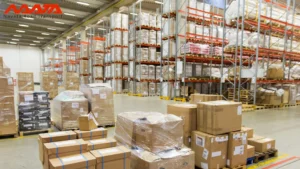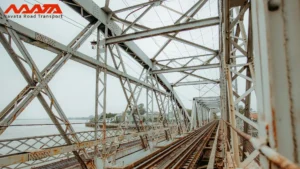Container Freight Station (CFS) : Meaning, Purpose & Benefits
Table of Contents
What is a Container Freight Station (CFS)?
A CFS warehouse is an area, typically a facility near shipping ports or crucial railway hubs. These CFS are either owned by private stakeholders or shipping terminals. Their primary function involves the consolidation and de-consolidation of less-than-container load (LCL) cargo. Consolidation includes bringing together multiple LCL shipments to form a full container load (FCL) whereas de-consolidation is the process of segregating the LCL shipments.
Moreover, a Container Freight Station is also utilized as a temporary storage space for goods for import and export.
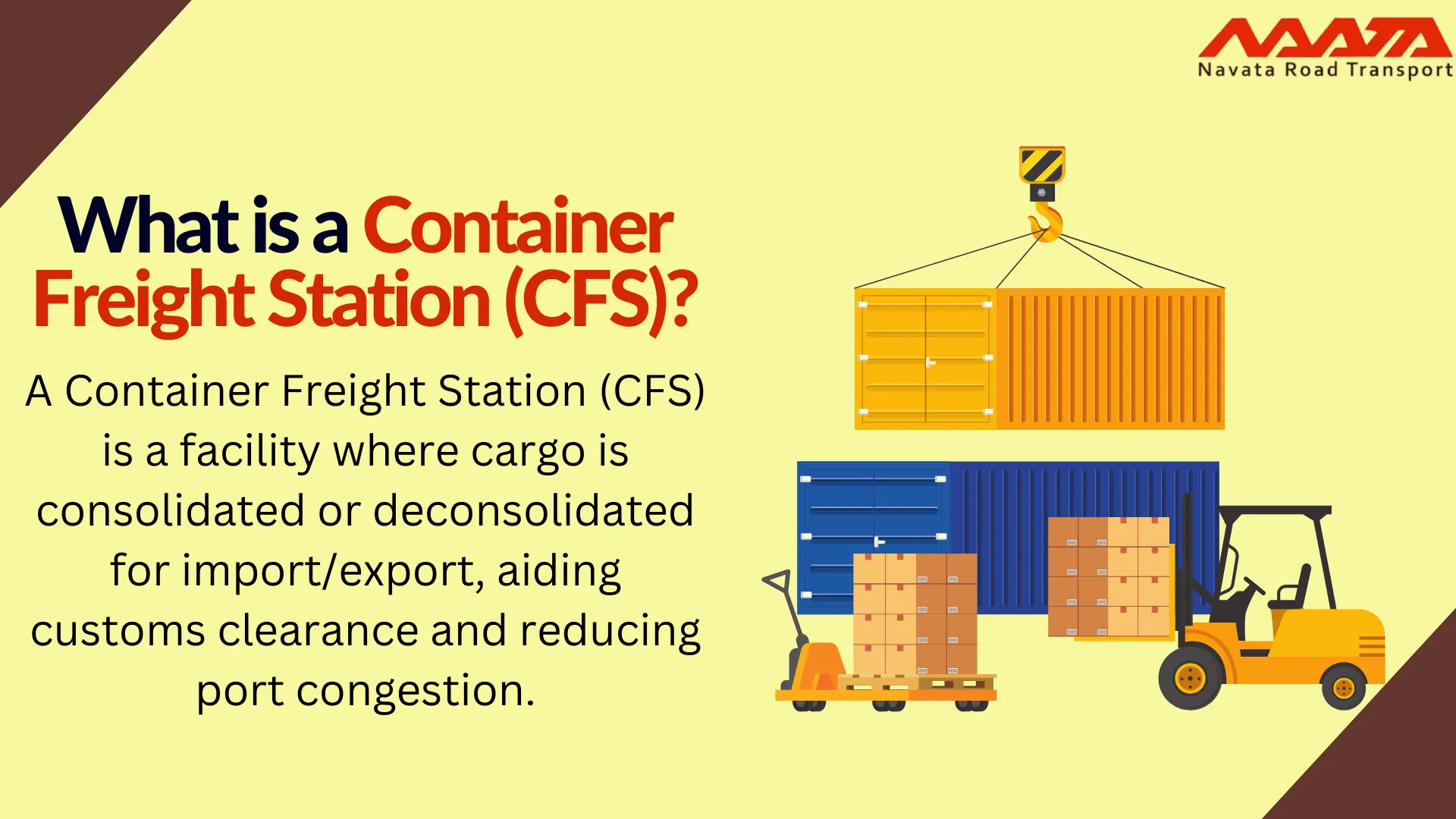
You May Also Like To Read : 7 Types of Warehousing and Concept of Warehousing
Why Container Freight Station?
CFS has become an integral part of the CFS logistics business. It has made the import-export business seamless at both origin and destination points. And so, CFS are segregated into origin CFS and destination CFS.
With the exponential increase in the demand for container freight station for LCL shipments, the stations have become a sought-after facility for import-export. It offers the advantage of a centralized shipment location, in turn contributing immensely to streamline and ease up the entire process.
What Does A CFS Do?
- Chalk out a viable container load plan
- Obtain and consolidate LCL shipments for export
- De-consolidate the container at destination CFS and dispatch the shipment
- Loading and unloading of containers
- Assign specific marks and seals to the containers for identification
- Arrange and rearrange empty containers from container yards
- Manage transportation of laden containers to port or terminal
- Maintain records of containers before & after shipping and sort accordingly
- Regular maintenance and timely servicing of the containers
- Overlook customs clearance at CFS, ensuring goods are secure until picked up or shipped
- Utilize available space to act as a temporary storage facility for cargo
The Import and Export Process at Container Freight Station
As the Container Freight Station (CFS) simplifies the shipping process for LCL and FCL cargo, here’s how the process works:
Export:
- Exporter arrives with goods at the CFS along with a shipping bill
- Goods are unloaded, and the CFS custodian confirms receipt
- Customs authorities initiate clearance
- Upon clearance, customs issues a shipping bill with “let export order”
- CFS begins container loading, then seals and dispatches it to the port
Import:
- Importer files an Import General Manifest (IGM) at the port with cargo details
- The container is delivered to the destination CFS
- Cargo is offloaded and sent for clearance
- The owner or their agent submits a bill of entry, completes duty payments
- Customs issues a bill of entry with “out of charge” status
- CFS custodian dispatches the shipment via a gate pass
Because it acts as an extension of the port, the container freight station helps reduce congestion and streamline cargo movement.
You May Also Like to Read: What Is Freight Forwarding?
Functions and Processes of Container Freight Stations
A CFS offers several services vital to CFS shipping and logistics:
- Receiving and Dispatching Cargo
- Container Maintenance (cleaning, pest-proofing, rust prevention)
- Stuffing and De-stuffing Containers
- Arranging Empty Containers by size and record tallying
- Marking Containers with consignee details for identification
- Loading and Unloading using cranes or forklifts
- Secure Storage with monitoring until final delivery
- Transit Services to move goods if pick-up is delayed
Benefits of Container Freight Station in Logistics
There are several strategic benefits of using container freight station in logistics, especially for businesses dealing in fragmented or LCL cargo:
- Saves Time – Streamlined customs procedures reduce processing delays
- Cost-Effective – Consolidated CFS shipping lowers per-unit freight costs
- Cargo Security – Secured warehouses and careful handling protect goods
- Accurate Records – All shipment data is stored for transparency and tracking
- Enables LCL & eCommerce Exports – Especially beneficial for CFS for eCommerce exports in India, where exporters may not have full container loads
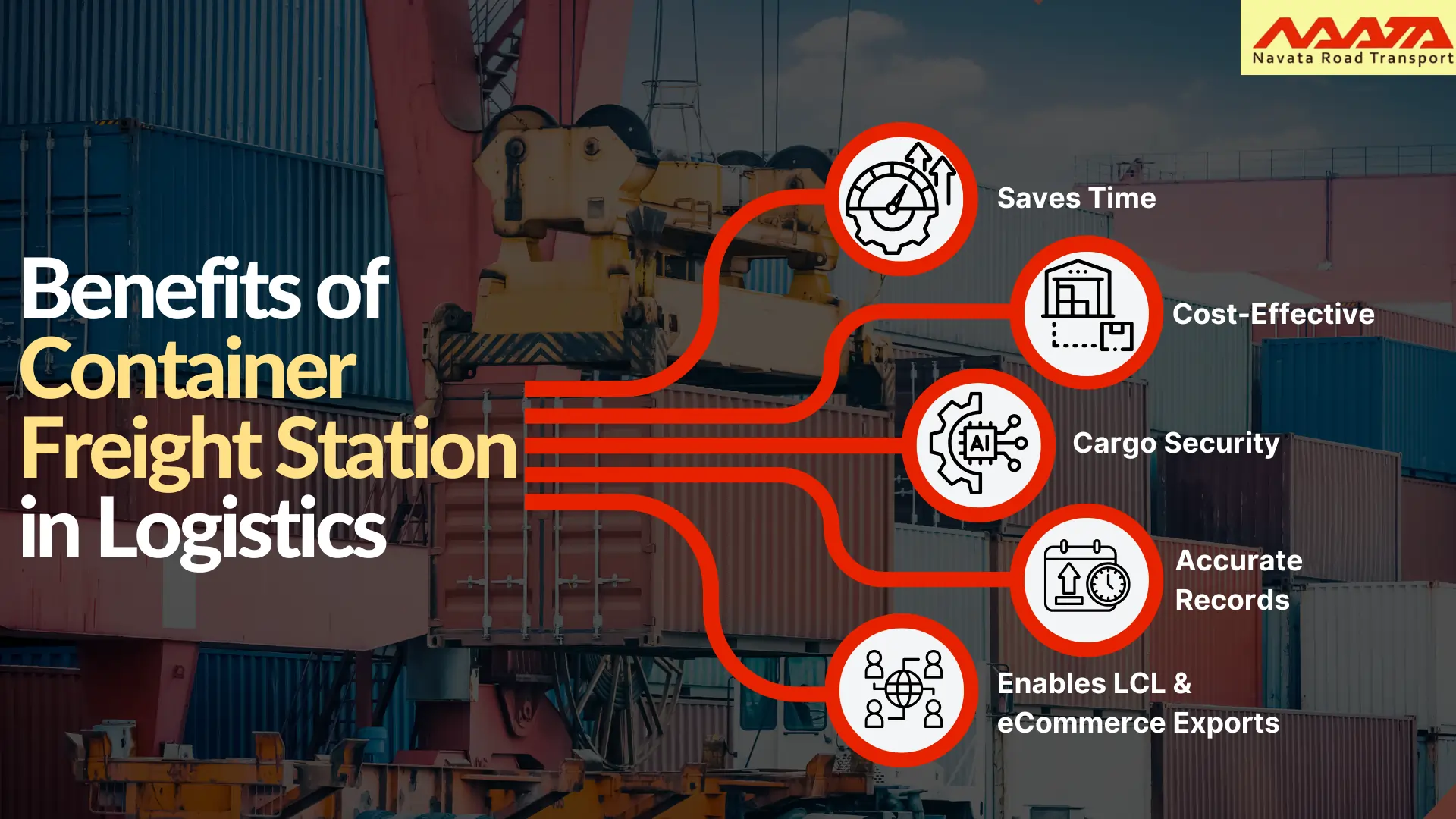
Types of Container Freight Stations
There are two types of CFS based on cargo movement:
Origin CFS – Located at the country of shipment, used for cargo consolidation
Destination CFS – Located at the destination country, used for de-consolidation and local dispatch
Best Practices to Improve CFS Utilization
To get the most from your CFS logistics, businesses should:
- Understand seasonal impacts (e.g., monsoon at ports)
- Monitor container arrival schedules to avoid bottlenecks
- Use automated alerts for tracking and driver punctuality
- Maintain strong coordination with customs and freight partners
- Consider pre-clearance where possible to save time
You May Also Like to Read: The Freight Forwarding Process – 9 Steps GUIDE
How Does CFS Shipping Benefit Export Businesses?
Here’s how CFS adds value to exporters, especially in eCommerce:
- Improves supply chain efficiency by offering temporary storage and consolidation
- Boosts air freight movement with faster turnaround
- Reduces shipping costs for LCL cargo
- Enhances security with trained handling and secured storage
- Maintains critical shipment data for easy tracking and reconciliation
- Accelerates timelines by cutting port congestion
CFS Charges: What to Expect
CFS charges depend on:
- Weight or volume of cargo (CBM/ton)
- Nature of goods (hazardous, perishable, etc.)
- Duration of storage
- Facility location and services required
Charges typically cover loading, unloading, packaging, and customs clearance at CFS.
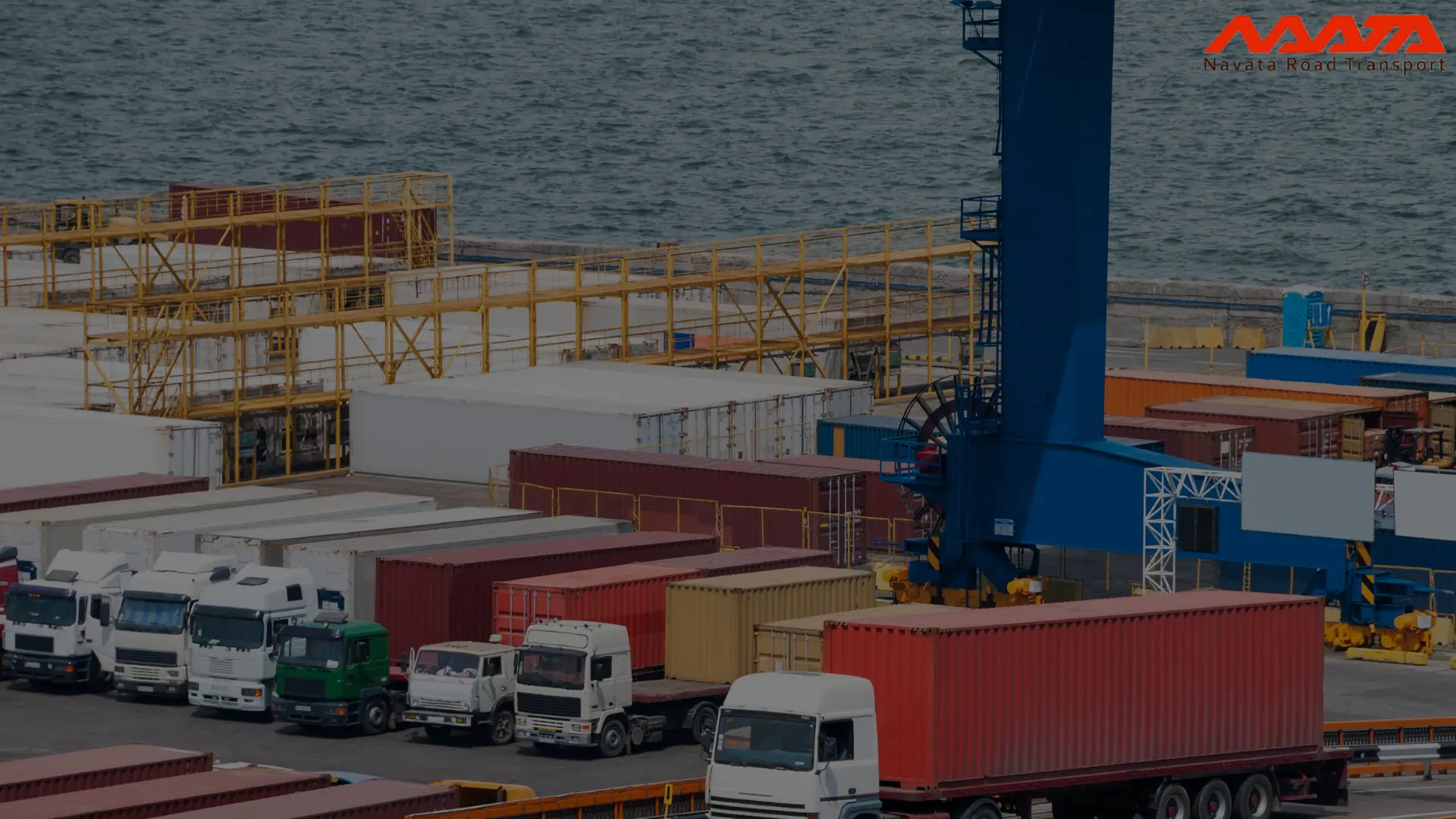
You May Also Like to Read: 6 Different Types of Freight Forwarding
Conclusion
Whether you’re an MSME scaling globally or a logistics provider optimizing freight movement, the Container Freight Station (CFS) is a gamechanger. It empowers businesses to manage LCL and FCL cargo efficiently, cut down on costs, reduce turnaround time, and streamline the CFS logistics process across borders.
In an era of eCommerce and high trade volumes, leveraging the benefits of using container freight station in logistics is essential for staying competitive.
Thanks For Reading : Container Freight Station (CFS) : Meaning, Purpose & Benefits
Powered By 360Presence

